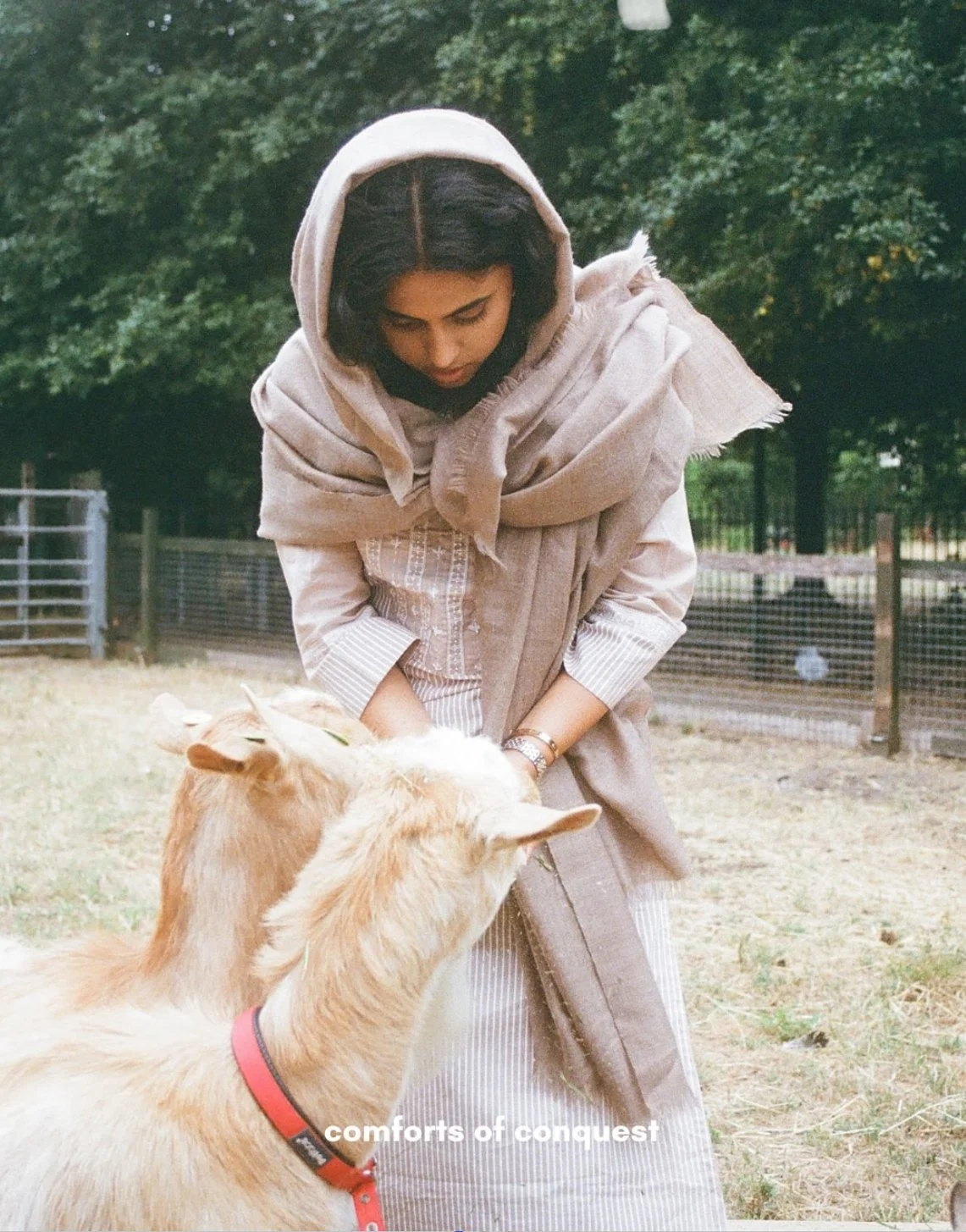Central to Amin’s artistic practice is an exploration of how and why we consume what we do. This quickly brought her research back to her home country of India, where she began exploring the ethics of everyday fibers and patterns.
Her Comforts of Conquest series explores the colonial and ecological impacts of natural fibers like pashmina, sourced from Changthangi goats in Ladakh and handwoven by Kashmiri artisans. Utilizing 35mm photography as well as archival and material research, she traces the extractive history of one of the world’s most luxurious fabrics. Imperial British trade, she notes, made massive profits off pashmina by marginalizing the indigenous labor that produced it. Her current project explores the effects of colonization and climate change on endangered craft and artisan communities in India.
Amin’s practice is about more than just the ecological impacts of fast fashion; it’s about how these practices disproportionately affect communities in the Global South, who are often the ones whose labor produces these textiles in the first place. Her long-term investigation of these topics aims to not only raise awareness, but also help these communities find sustainable, climate-neutral solutions through microbial dyes and alternative methods. Amin urges us to question the power that fashion holds over our lives and our planet, encouraging us to reimagine a world where sustainable fashion might be synonymous with equity, resilience, and cultural memory.



